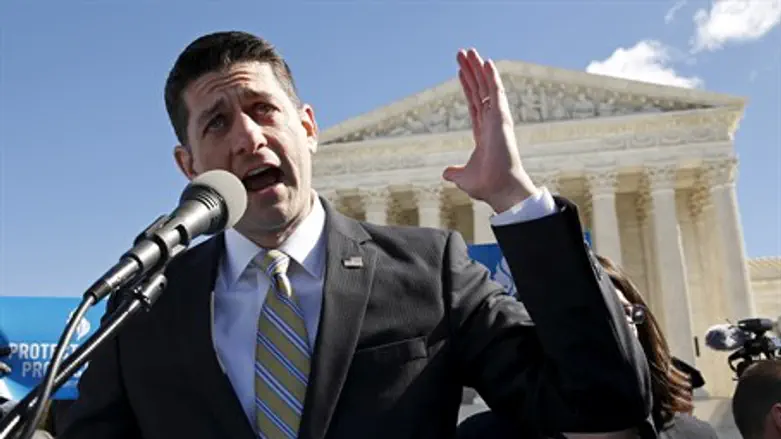
House Speaker Paul Ryan on Monday officially ruled out making a late attempt to become the Republican presidential nominee.
"I do not want, nor will I accept the Republican nomination," he said, according to the BBC.
Ryan's name was floated as a late contender if there is a contested convention in July, as doubts persist over the strength of the candidates.
If Donald Trump, John Kasich nor Ted Cruz is able to win 1,237 delegates, the convention will be contested.
Some in the party had hoped Ryan would emerge as a candidate who could be a more effective and less divisive figure than Trump or Cruz.
The Ryan presidential boomlet was largely a result of growing desperation among Republicans who see a presidential ticket headed by Trump as an unmitigated disaster and by absolutist Ted Cruz as only a slightly mitigated disaster, noted the BBC.
Republican Party bigwigs recently met to lay out a plan to derail Trump’s path to the Republican nomination.
Aside from coordinating efforts to prevent Trump’s nomination, conservative activists and party leaders were reportedly also mulling an option that was unthinkable just half a year ago: breaking with the Republican Party and launching an independent, third party bid for the White House.
But a poll released last weekend found that a third of Republican voters who support Trump could turn their backs on their party in the presidential election if he is denied the nomination in a contested convention.
The poll, conducted between March 30 and April 8, asked Trump’s Republican supporters two questions: if Trump wins the most delegates in the primaries but loses the nomination, what would they do on Election Day, and how would it impact their relationship with the Republican Party?
66 percent said they would vote for the candidate who eventually wins the nomination, while the remaining third were split between a number of alternatives such as not voting, supporting a third-party candidate, and switching parties and voting for the Democratic nominee.
Meanwhile, 58 percent said they would remain with the Republican Party. Another 16 percent said they would leave it, and 26 percent said they did not know what they would do with their registration.
Trump and Ted Cruz both trail Democratic front-runner Hillary Clintonamong likely general election voters in a hypothetical general election matchup, but not by much, according to the recent polls.